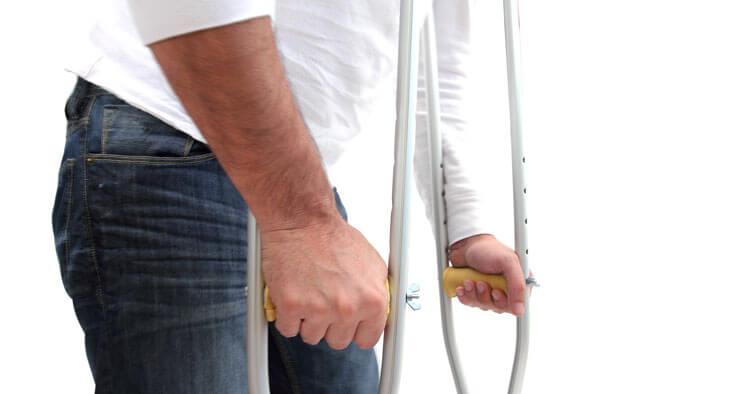Injury Rehabilitation and Training, Muscle Pain and Tendinopathy, Sports Injuries and Management
Corked Muscle Physiotherapy Treatment Options
Treatment Protocol For Corked Muscle Injuries
A physiotherapist can help diagnose and grade injury severity. Muscle contusions are sometimes confused with muscle tears, applying the correct management for both the type and severity of injury is crucial when looking for a speedy return to play and preventing any complications along the way. Ideally following soft tissue injury like a corked muscle you should see your physiotherapist as soon as possible to help with the early management. Avoiding doing the wrong things and furthermore doing the right things following muscle injury can take days of the return to play time frame and your local physio can help with this.
If you have a suspected corked muscle injury, then remembering the first do no H.A.R.M. protocol is a big step in the right direction. This acronym referrers to “no Heat”, “no Alcohol”, “no Running” or aggressive physical activity involving the injured area and “no Massage”. It is important to both follow this strictly, as well as applying the RICE protocol concurrently. A physiotherapist can help guide you on how long this approach is appropriate and when a more active rehabilitation approach can take over.
So it is best practice to if in doubt, follow such a protocol or H.A.R.M and R.I.C.E until you are able to be assessed by your physiotherapist. Doing this will help ensure decreased swelling and bleeding in and around the injured area.
Moderate to severe contusions they may require the use of crutches to ensure complete rest, particularly if full weight bearing on the affected leg is painful and can’t be done without significant limping.
What Can A Physiotherapist Do To Assist The Recovery Of A Corky?
Beyond assessing, diagnosing and grading injuries your physio can assist as mentioned above in providing advice on best management of the injury, as well as when to shift from a more passive approach, to a more active rehabilitation, moving through to a return to play. In the practice physiotherapist can use treatment techniques like massage, dry needling, ultrasound therapy, shockwave therapy. These passive therapies when timed appropriately can assist in aiding your body remove swelling, bruising, manage scar tissue formation and assist muscular repair.
Potential Complications Of Muscle Contusion Injuries
A potential complication of severe muscle contusion injuries is developing of Myositis Ossificans, a condition where calcification occurs in the healing hematoma. This can result if the corked muscle is not managed correctly in the early stages, or if treated too aggressively by a well meaning individual. In this situation the healing hematoma forms a small amount of bone tissue within layers of the affected muscle so much so that is may be possible to palpate a hard bump or ‘woody’ feel in the muscle. Symptoms of myositis ossificans can include night time and morning pain, as well as pain on muscle contraction and stiffness and loss of knee range of movement when occurring associated with a thigh injury.
Myositis ossificans bone formation typically ceases after six to seven weeks post injury, at which time the bone begins to break down and be reabsorbed by the body. Doesn’t sound too bad, however given it is ideally an avoidable complication and a complete recovery from can take up to a year in severe cases rather than only weeks. The best treatment for myositis ossificans is not getting it in the first place, meaning appropriate treatment guided and implement by a physiotherapist with higher grade corked muscle injuries is the most sensible management approach for the majority of athletes.
Disclaimer: Sydney Physio Clinic does not endorse any treatments, procedures, products mentioned. This information is provided as an educational service and is not intended to serve as medical advice. Anyone seeking specific advice or assistance regarding Corked Muscle Physiotherapy Treatment Options should consult his or her orthopaedic surgeon, general practitioner, sports medicine specialist or physiotherapist.


